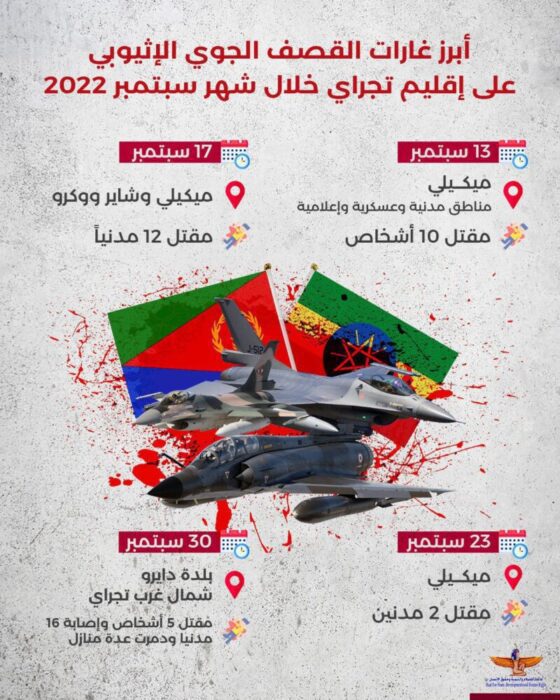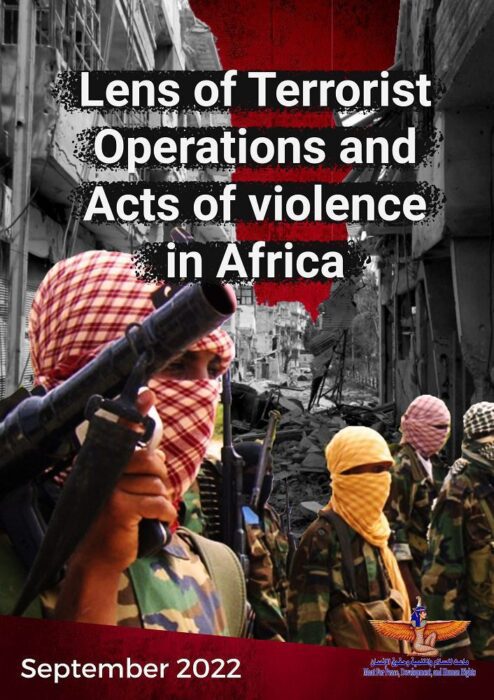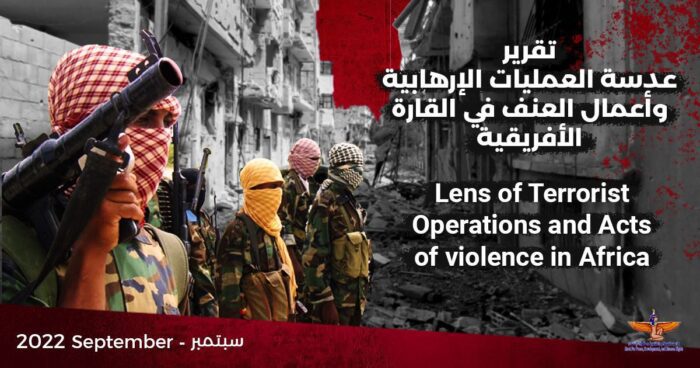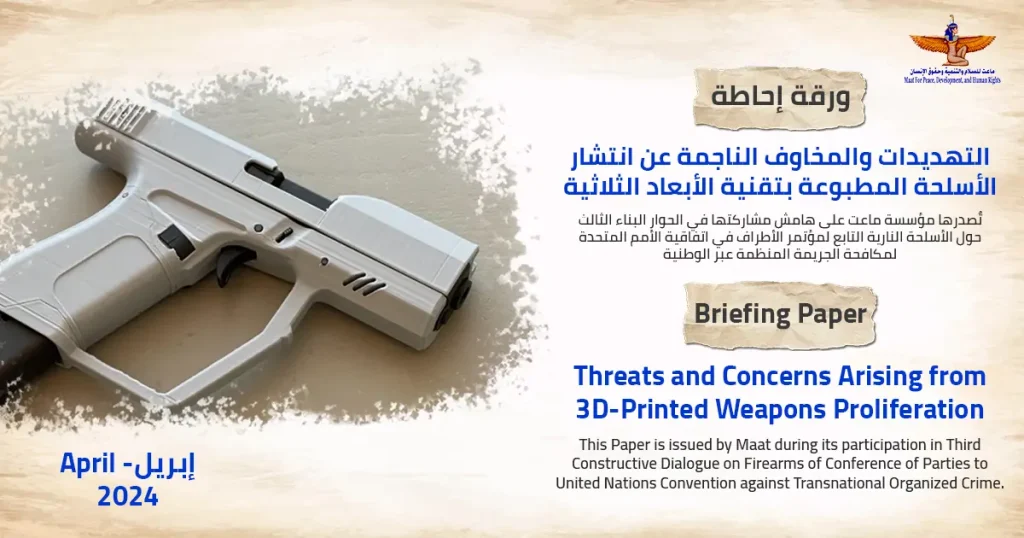Okeil: Ethiopia must abide by law enforcement when conducting military operations to avoid direct targeting of civilians
Gharib: We recommend African countries to increase military and operational training against terrorism to activate African peace
The phenomenon of terrorism and its qualitative, historical and geographical transformations within Africa lead to blatant human rights violations and severe economic costs. However, terrorist operations went off-limits this month, with 1,135 deaths. All this is highlighted and elaborated on in Maat’s monthly report entitled "Lens of Terrorist Operations and Acts of Violence in Africa, September 2022."
The September report confirmed that East Africa ranked first this month with (434) deaths, compared to 129 in August, due to the tense security situation in the Tigray region and other armed groups. West Africa ranked second with (381) deaths, the Central Africa region ranked third with (232) victims, followed by South Africa with (65) deaths, and North Africa came last with (23) deaths.
In terms of the numerical distribution of terrorism victims by country, Ethiopia was the deadliest country in September 2022, with 300 casualties, in addition to the indiscriminate aerial bombardment on civilian sites. The Democratic Republic of the Congo ranked second with 218 victims. Burkina Faso ranked third with123 victims, followed by Niger with 121 victims, then Somalia with 85 victims and over 21 terrorist attacks.
In the same context, Ayman Okeil, a human rights expert and President of Maat for Peace, Development and Human Rights, expressed deep concern about the current events in Ethiopia, which was the most violent country last September, mainly due to clashes between various parties and regions, such as the clahes between government forces and the Tigray Liberation Front in Afar, Amhara, and Tigray, as well as the fighting between government forces and the Oromo Liberation Front, including battles and targeting of civilians.
Within the framework of Maat's follow-up to the humanitarian situation in the Tigray region, and in its capacity as an advisor in the United Nations Economic and Social Council, Maat sent a report to the International Commission of Human Rights Experts on Ethiopia that monitors the latest developments in the region, in light of the ongoing aerial bombardment on civilian cities and its human rights repercussions. Maat also made four urgent appeals to the Special Procedures concerned with the ongoing humanitarian crisis, namely; Special Rapporteur on food, Special Rapporteur on minority issues, Special Rapporteur on the promotion of truth, justice, reparation and guarantees of non-recurrence, and Special Rapporteur on the promotion and protection of human rights while countering terrorism, the human expert noted.
Okeil reiterated his recommendation to the Ethiopian government to comply with its obligations under international humanitarian law, and to apply the utmost caution by all law enforcement units when conducting military operations, to avoid direct or indirect targeting of civilians.
For his part, Sayed Gharib, a researcher in the Sustainable Development Unit at Maat, said that Africa needs to launch anti-terrorism proactive and preventive policies, especially at the security level by strengthening defense and security institutions by increasing military and operational training against terrorism and activating and reforming continental security institutions and their revitalizing to activate their role in preserving and approving African peace.
Maat reiterates its recommendation that an anti-terrorism African strategy should be launched under an economic and developmental guise, and that attention should be paid to the real causes and drivers of terrorism, by investing in human capital in the African countries, Gharib added.


 |
 |











